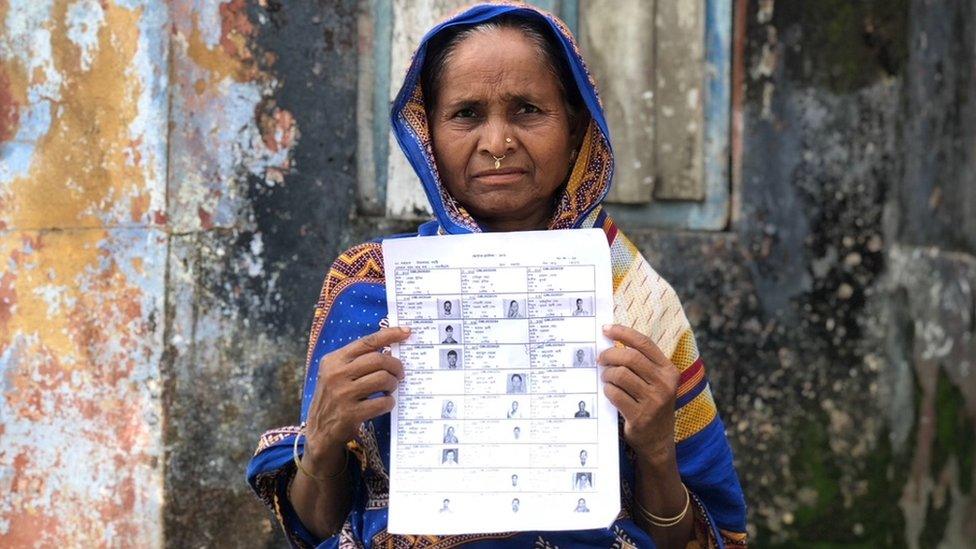Citizenship Amendment Act: India PM Modi appeals for calm as protests grow
- Published
Protests are taking place all over India
India's Prime Minister Narendra Modi has appealed for calm as violent protests against a new law on illegal migrants continued for a fifth day.
Large rallies have been taking place in the capital Delhi, Mumbai, Hyderabad and Kolkata (formerly Calcutta).
Monday's protests came a day after clashes between police and protesters in Delhi left at least 50 injured.
Protesters are angry at a law entitling citizenship to some non-Muslim migrants from three Muslim-majority countries.
The leader of India's opposition Congress Party, Sonia Gandhi, accused the government of creating an atmosphere of religious tension for political interests.
The protests - which have left six people dead - began in the north-eastern state of Assam last Thursday, before spreading to other parts of northern and eastern India.
But people are divided on why they have taken to the streets. Some critics say the law is anti-Muslim, while others - especially in border regions - fear large-scale migration.
The law allows non-Muslims from Bangladesh, Pakistan and Afghanistan, who entered India illegally, to become citizens.
What did Mr Modi say?
The PM attempted to calm tensions in a series of tweets as students resumed their protests on Monday.
"No Indian has anything to worry regarding this act. This act is only for those who have faced years of persecution outside and have no other place to go except India," the prime minister wrote.
"This is the time to maintain peace, unity and brotherhood."
Authorities have tried to curb the protests by shutting down internet services, so it is unclear how many people in affected areas have seen his tweets.
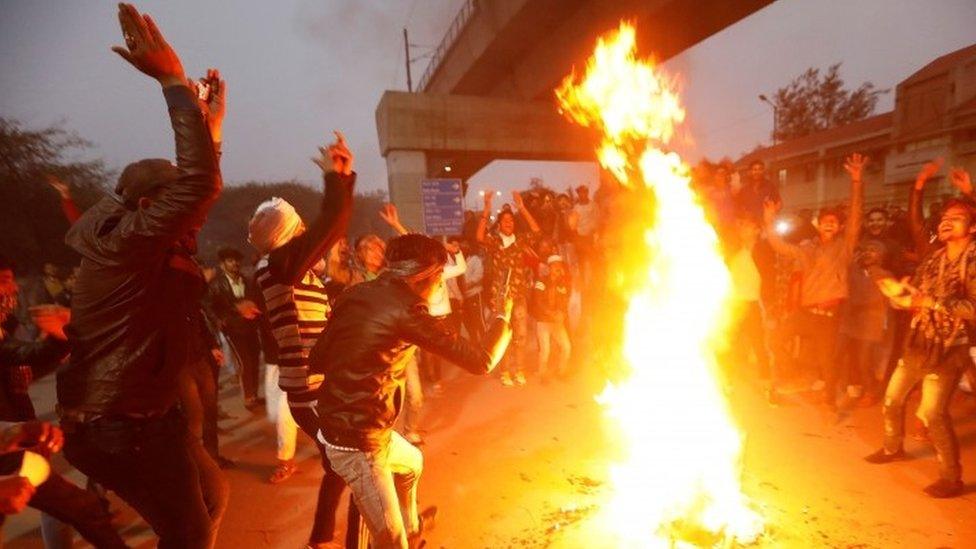
Protesters in Delhi burned an effigy of PM Narendra Modi
The Congress Party has accused the government of declaring a war on its own people.
Several lawyers have asked the Supreme Court to intervene, pointing out that officers had allegedly assaulted students in bathrooms, but the chief justice said that the court would not take any action until the protests ceased.
Delhi police spokesman MS Randhawa denied allegations against them, saying his officers "exercised maximum restraint".
The UK, US and Canada have issued travel warnings for people visiting India's north-east, telling their citizens to "exercise caution" if travelling to the region.
What is happening in Delhi?
Protests resumed at the city's prestigious Jamia Millia Islamia university on Monday morning, following violent clashes on Sunday that resulted in 35 students being detained.
Several Delhi metro stations were closed.
A march on Sunday ended with at least three buses and several motorbikes being torched, roads blocked and stones being thrown at officers, who responded with tear gas.
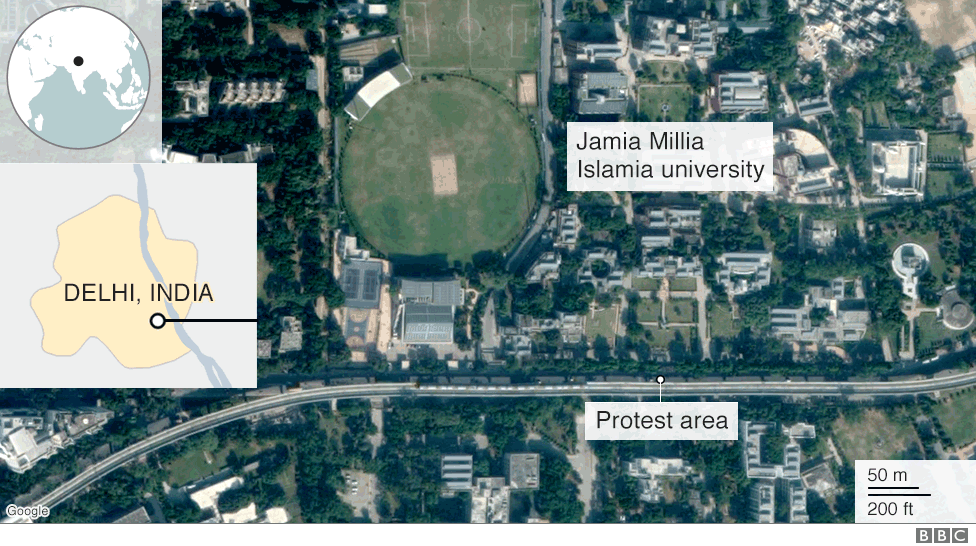
The university said police later entered the campus without permission and video footage showed police assaulting students and staff. Videos shot by students show police beating up students inside campus areas like bathrooms and the library.
Police have said that they did what was "necessary" to stop the protests.
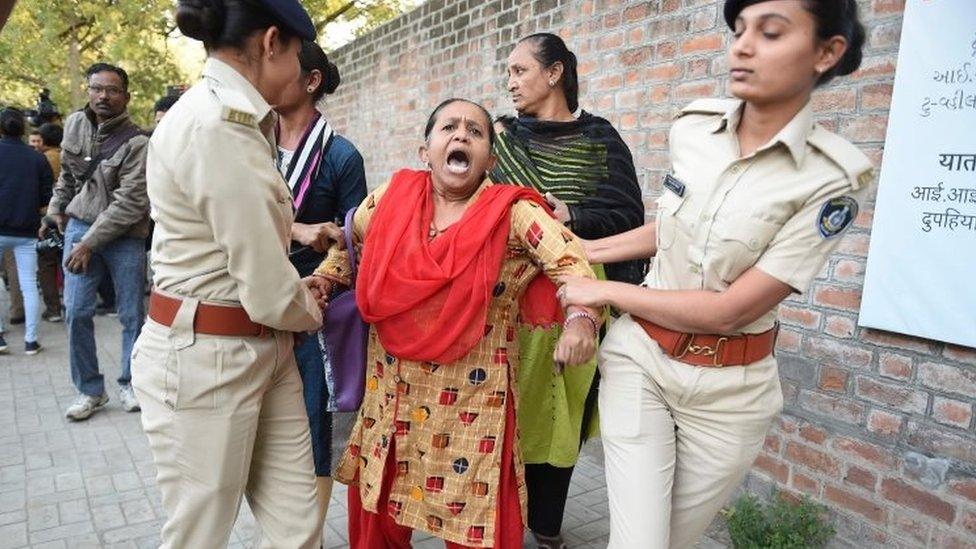
On Monday, demonstrations were also staged in Ahmedabad and other Indian cities
The university's vice chancellor, Najma Akhtar, condemned the police action on Monday, telling reporters they would be filing a court case against the police and demanding a high-level inquiry.
She also denied rumours of student deaths.
Hundreds of people also protested in other parts of the city, including in Jawaharlal Nehru University and outside the city's police headquarters.
How have Indian authorities reacted?
India's Chief Justice Sharad Bobde said that the Supreme Court would intervene only if "the atmosphere settles down", adding that student protesters could not "take the law into their own hands".
"The court can't do anything right now. Let the riots stop," he said.
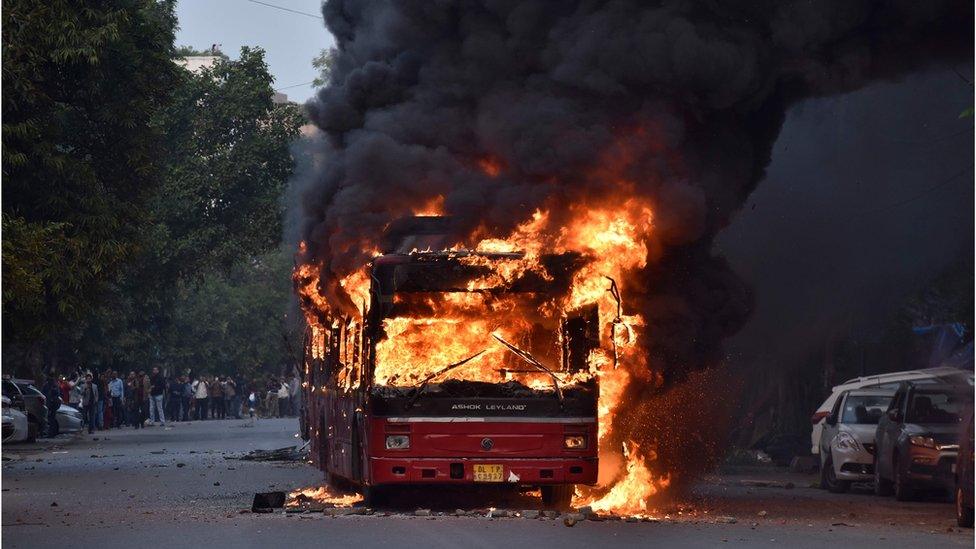
Buses were torched in Delhi over the weekend
The police have been heavily criticised, with many on social media alleging that officers attacked students with sticks and tear gas when they were peacefully protesting.
But Mr Randhawa, the police spokesman, said students and locals threw stones at police first, adding that 30 officers were injured.
What has the reaction been in other Indian cities?
Footage from the northern city of Lucknow on Monday showed students at Nadwa university throwing stones at security forces, who retaliated by throwing the stones back.
The students have been locked inside the campus.
Television footage also showed officers hitting students with large sticks.
In Kolkata, tens of thousands of people joined a demonstration led by Chief Minister Mamata Banerjee and her ruling Trinamool Congress party.
Why is the law so divisive?
The Hindu-nationalist BJP government argues that the law aims to accommodate those who have fled religious persecution.
Critics say the law is part of the government's agenda to marginalise Muslims, and that it violates secular principles enshrined in the constitution.
Earlier this week, the United Nations Human Rights office voiced concern that the new law was fundamentally discriminatory.
The government denies religious bias and says Muslims are not covered by the new law because they are not religious minorities, and therefore do not need India's protection.
Meanwhile, people in Assam fear that they will be "overrun" by illegal non-Muslim migrants from neighbouring Bangladesh.
They argue that outsiders will take over their land and jobs - eventually dominating their culture and identity.
- Published12 March 2024
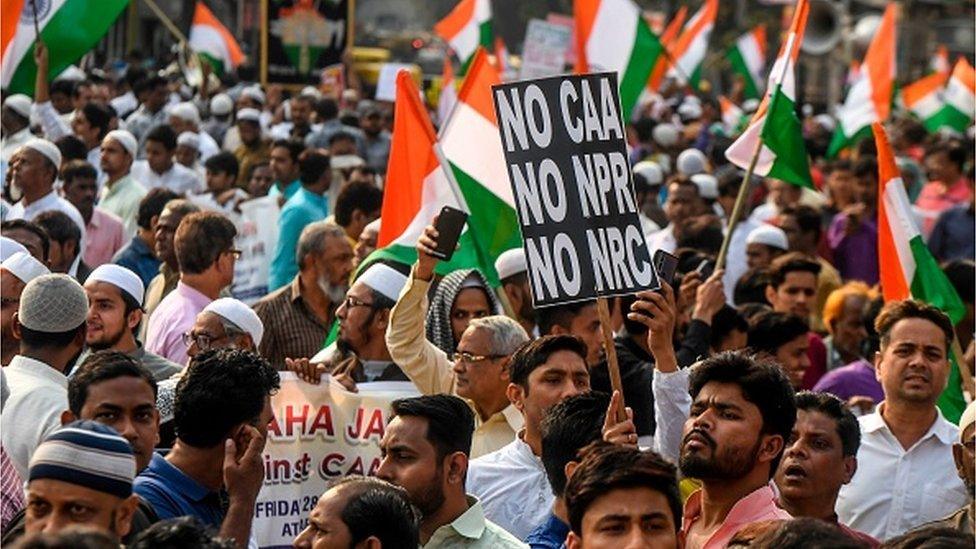
- Published14 March 2024
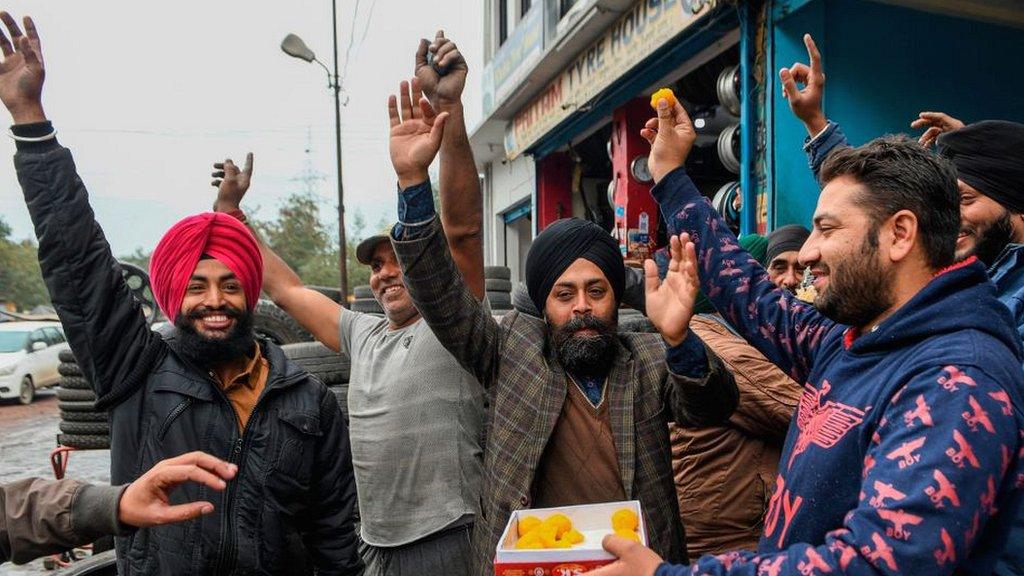
- Published12 December 2019
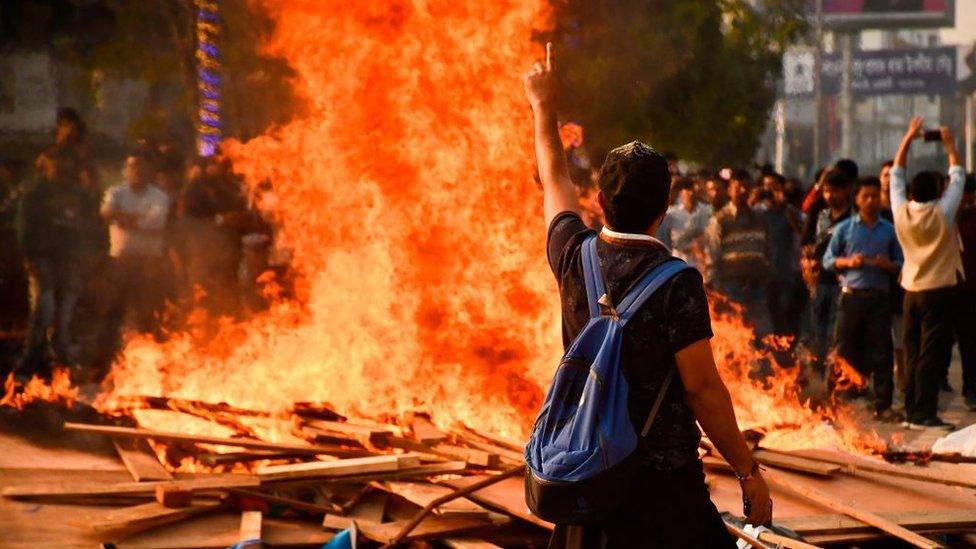
- Published30 July 2018
